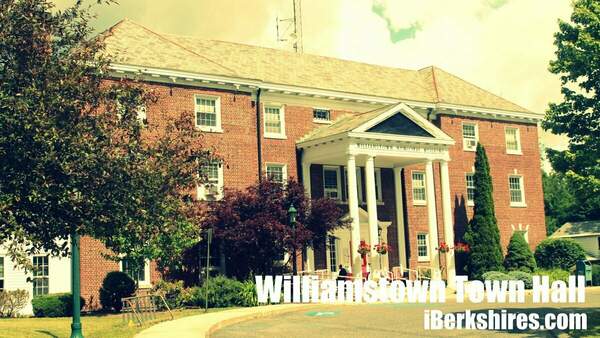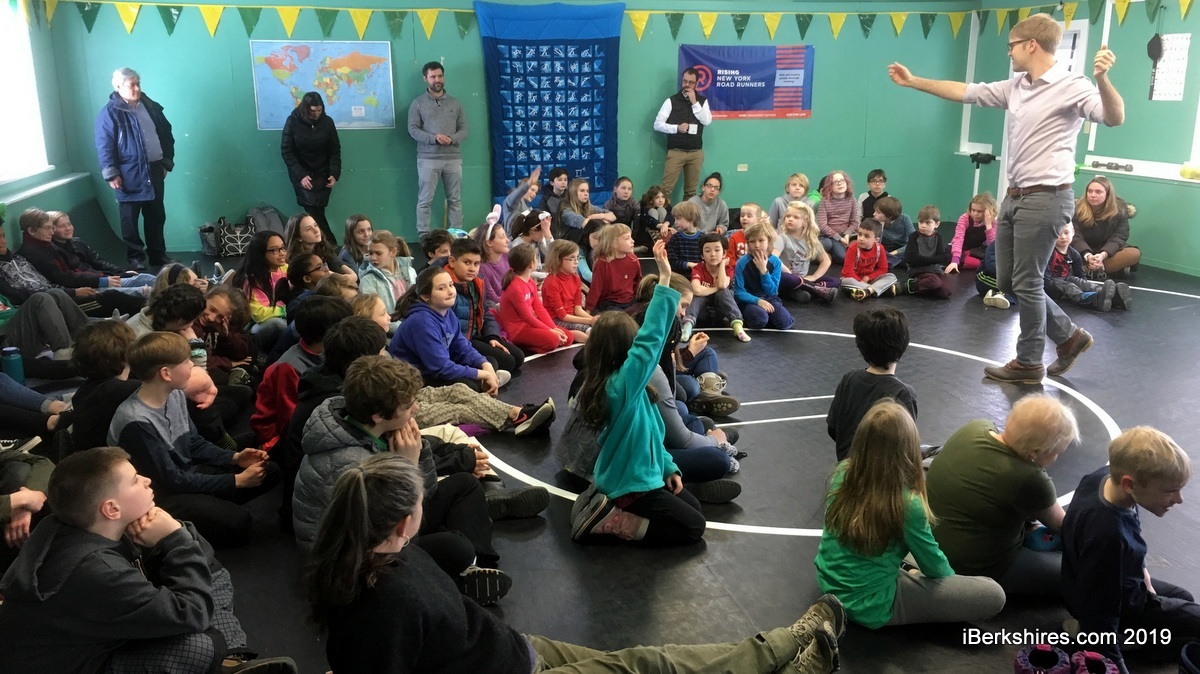
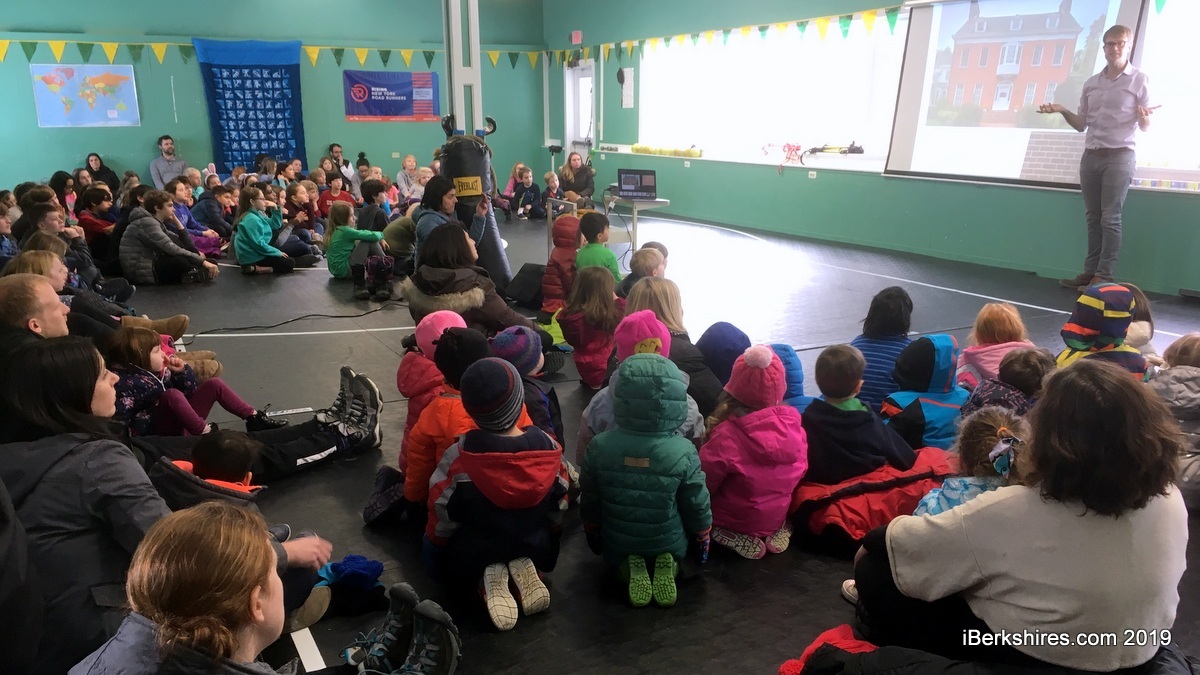
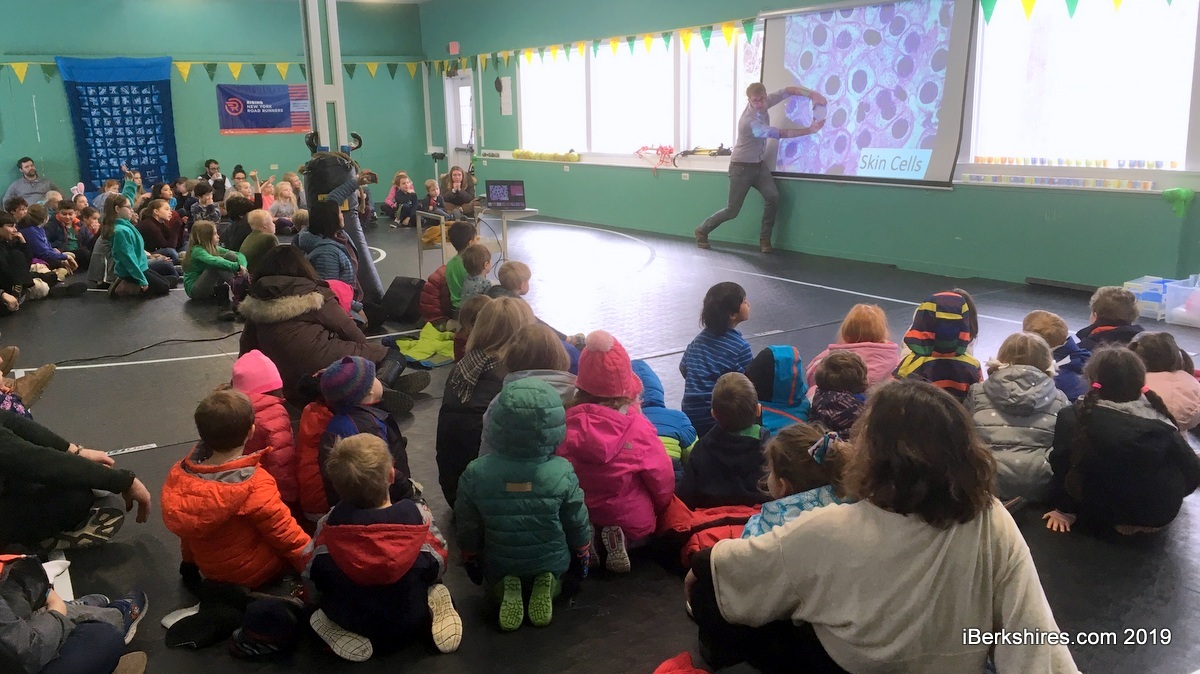
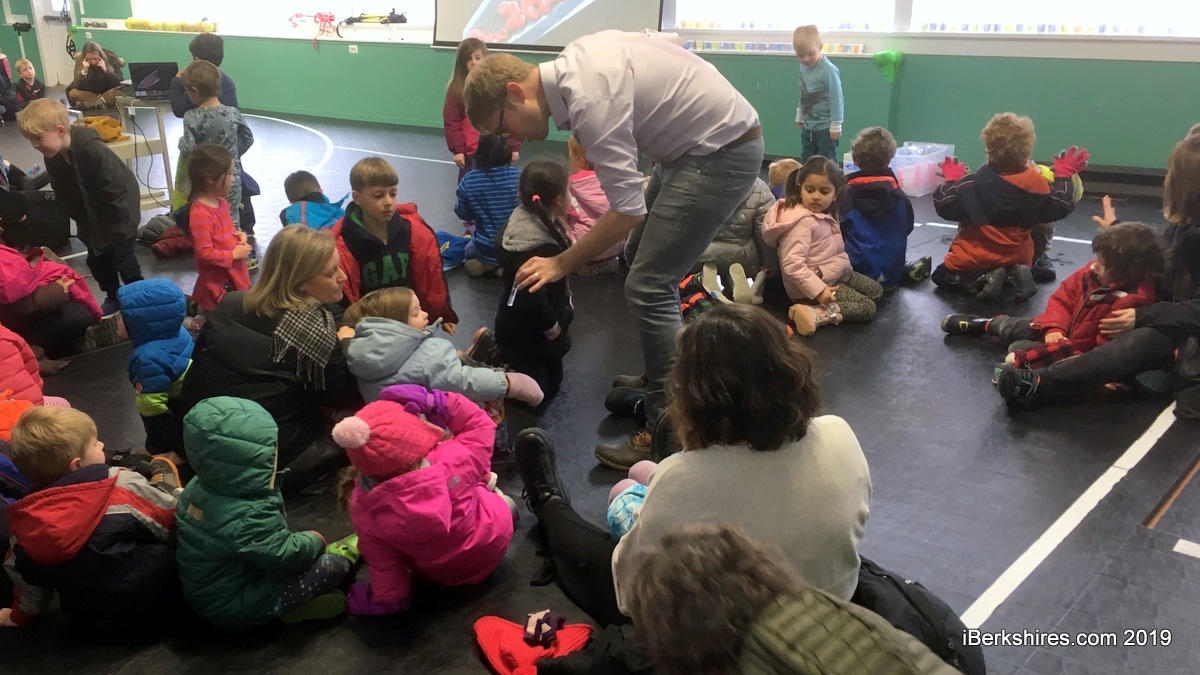
Pine Cobble Alumnus Give Students DNA Lesson
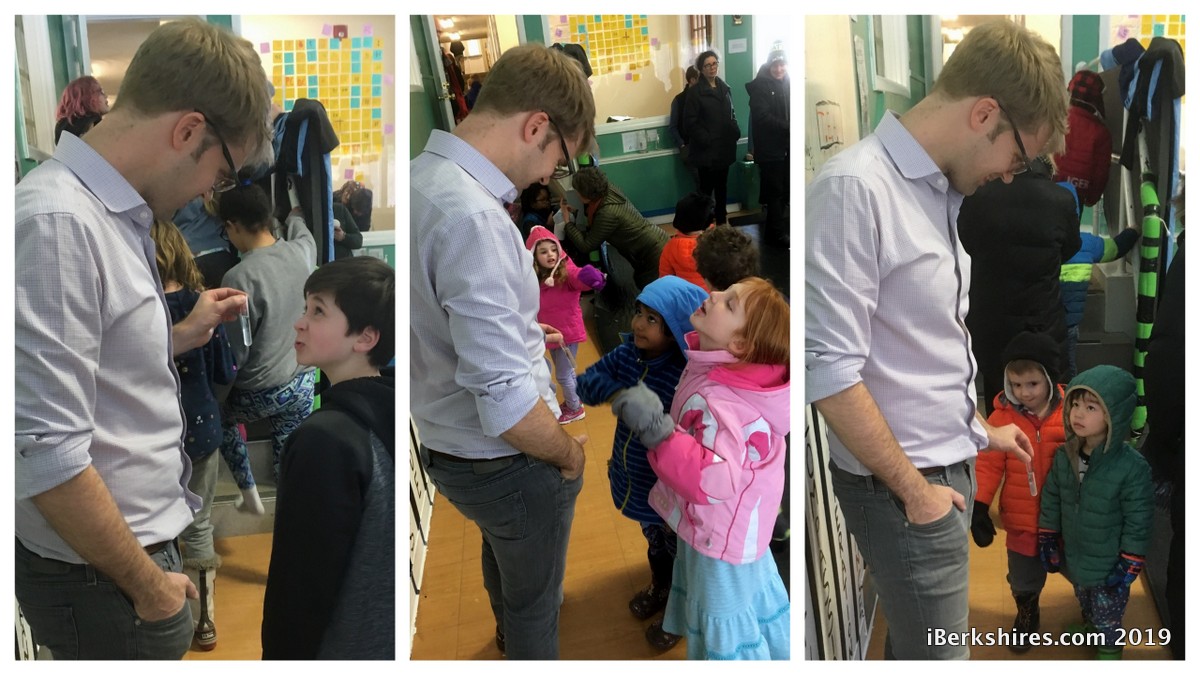
WILLIAMSTOWN, Mass. — Before Tyler DeWitt did a TED Talk, before he had a website and a YouTube channel, before he received his Ph.D. in microbiology from the Massachusetts Institute of Technology, before he taught high school chemistry and biology in both the United States and South Korea, before he was a National Science Foundation fellow, he was just a student at Pine Cobble School.
On Feb. 27, DeWitt returned to the private school from which he graduated in 1997. It wasn't his first time back; he actually spoke at the school's commencement ceremony in 2013 and helped facilitate a STEAM summer camp session in 2018. And as often as he can, he comes back to Pine Cobble to try to make science fun for this generation of students.
And so on Feb. 27, in front of the school's students who were as little as pre-K and kindergarteners and as big as eighth- and ninth-graders, DeWitt bounced around the room to give an energetic science lesson on a subject that could potentially be scary: DNA.
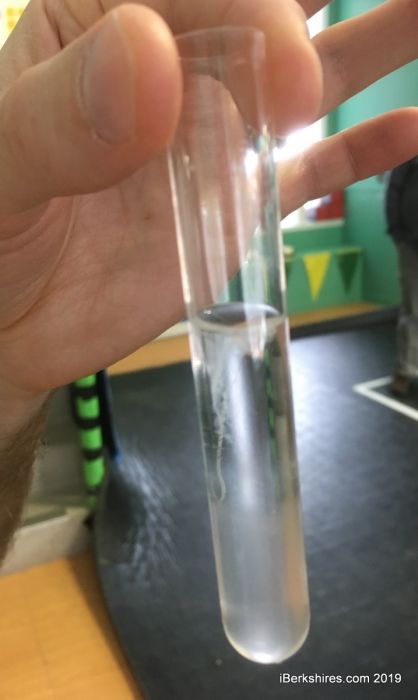
That's deoxyribonucleic acid, not something to do with the "appetite of dinosaurs," as one student suggested.
"You can see why people use the abbreviation," DeWitt said.
Using a combination of slides and audience participation, an energetic DeWitt walked the students through the meaning of DNA. DNA determines a person's traits or characteristics, like eye color or height, or even the characteristics of a plant, like what color flowers it has or how big its leaves are. DNA is found in every part of the body, in the nucleus of cells, he said, showing pictures of cells magnified to give the students a clearer idea of what he was talking about.
"They're so tiny that you need hundreds or thousands to see even one," he said.
The best science, of course, is hands-on, and so DeWitt came prepared to lead the students on an exploration of their own DNA. He wasn't able to do that during his presentation, as they ran out of time, but he demonstrated with his own body and assured the students he was providing their teachers the materials they needed to do the experiment back in their classroom.
This was after he assured the students the experiment would be painless, after one student suggested they would need needles to extract DNA.
"This is silly and fun and it doesn't hurt at all," he said.
Instead of drawing blood, he said, the best place to get DNA samples? A person's cheek, which he said was teeming with cells.
"Your cheeks have cells that are coming off all the time," he said.
And so, he got down to it: He told the students he was going to take a sip of water, swish the water around his mouth for 60 seconds to really loosen those cells, and then spit the water into a cup. Which he did, as the students counted up to 60 to time him. (They tried, but it was actually 48 seconds.)
"Now I have some spit here that's filled with cheeky cells," he said to a chorus of both giggles and "eews" from the students.
Those cheeky cells were transferred to a test tube, a chemical was added to help break open the cells, some regular rubbing alcohol was added to "let the DNA come out of the cells" … and then he let it sit for a few minutes before "long strings" started to "bubble out."
"Those are the DNA," he said.
He carried the test tube around to show all the students, and even held it as the students filed past him out of the room to go home for the day, buzzing about when they would get a chance to do their own swishing and spitting.
"That was amazing," one student said.
Watching them leave the school where he spent so many of his formative years, DeWitt said he comes back to Pine Cobble as much as he can. He said he appreciates the way the school is "all about creative learning," even more so now than he when we was a student in the 1990s.
"It's so cool," he said, adding that he loves seeing the students "excited and engaged" with science. "They have a lot of energy."
Tags: DNA, Pine Cobble, science, STEM,






